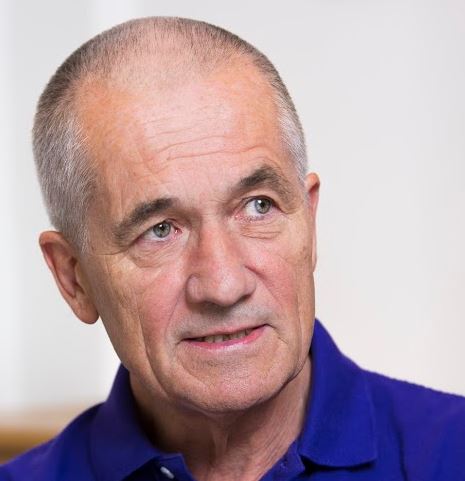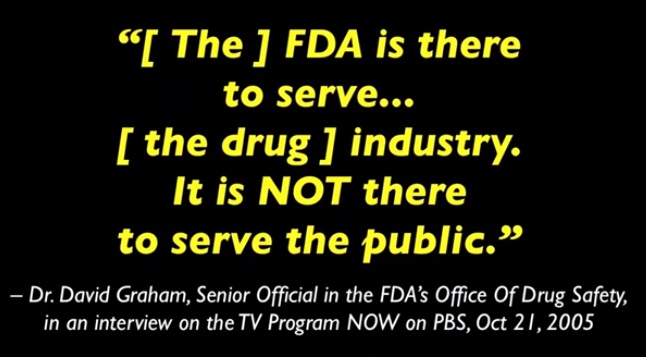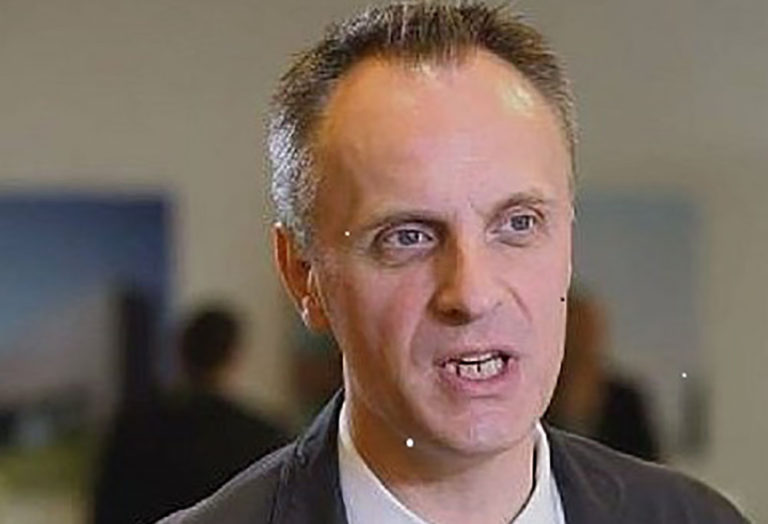Deadly Psychiatry and Organised Denial by Dr. Peter Gøtzsche
Professor Peter Gøtzsche, a leading researcher who heads the Nordic Cochrane Centre, the Scandinavian arm of the Collaboration, a center for independent researchers who analyze published medical research reports and freely disseminate their findings. It should be noted that as a doctor of internal medicine, his introduction into psychiatry’s barren scientific base and lack of clinical support for its drug prescribing practices came rather late. He credits two books with opening his curiosity about the nature of psychiatry’s body of knowledge: Dr. David Healy’s Let Them Eat Prozac (2003) and Robert Whitaker’s Anatomy of an Epidemic (2010).
When he discovered the scope of psychiatry’s sub-standard scientific research base and the magnitude of harm produced by prescribed psychotropic drugs, he expressed his horror loudly and publicly, much to the chagrin of psychiatry’s corporate, institutional and individual stakeholders. He has concluded that “the vast majority of psychiatrists that are extreme. It is truly extreme that psychiatrists have built their specialty on a number of myths, lies and highly flawed research, which have harmed our nations to the extent we have seen.”
Recognizing the fear among conscientious psychiatrists who put their careers at risk if they deviate or criticize psychiatry’s norm and practice, he has taken upon himself the mission of alerting the public to the truth about the harmful risks of prescribed psychiatric drugs; indeed, the life-threatening risk of suicide directly linked to these drugs.
He estimates that “there are likely to have been 15 times more suicides among people taking antidepressants than reported by the FDA.” He cites a revealing observation about FDA’s skewed meta-analysis of suicides during clinical trials of SSRI antidepressants.
“Thomas Laughren was responsible for the FDA’s huge meta-anaysis of the randomised trials, which reported only 5 suicides in 52,960 patients on SSRIs, or one per 10,000. Five years earlier, Laughren reported on 22 suicides in 22,062 patients randomised to antidepressants using FDA data, which is 10 per 10,000 (4), or 10 times as many as he reported five years later!
There were only 2 suicides in 8,692 patients on placebo, which Laughren interpreted thus: “There is obviously no suggestion of an excess suicide risk in placebo-treated patients.” No, but why didn’t Laughren comment on the fact that flies in the face, namely that there were four times as many suicides on antidepressants as on placebo, which was statistically significant (P = 0.03, my calculation)? When Laughren left the FDA, he established the Laughren Psychopharm Consulting with himself as director to help the drug industry with getting their drugs approved.”
“What I get out of the colossal underreporting is that SSRIs likely increase suicides in all ages. It is remarkable that it is so subjective how many suicides there are and also that several major drug companies have cheated with their reporting of suicides and suicide attempts. I doubt SSRIs are safe at any age, and they kill very many elderly patients by falls and hip fractures.” (BMJ, May 2015)
(Read also, Public Testimonies at FDA-SSRI-Suicidality Hearings, 2006; AHRP letter of complaint Re: Laughren ghostwritten journal article; Top FDA Officials Compromised by COI )
Below Dr. Gøtzsche introduces his new book — Deadly Psychiatry and Organised Denial — to alert the UK public in the Daily Mail about the truth .
Daily Mail 14 September 2015 | Updated: 15 September 2015
Prescription pills are Britain’s third biggest killer: Side-effects of drugs taken for insomnia and anxiety kill thousands.
- Why do doctors hand them out like Smarties?
- 80 million prescriptions for psychiatric drugs are written in UK every year
- Psychiatric drugs are the third major killer after heart disease and cancer
- Professor Gøtzsche reveals the scale of the issue in a new book
- Luke Montagu, 45, heir to the Earl of Sandwich, was wrongly prescribed anti-depressants which took him seven years to detox from
By Professor Peter Gøtzsche For The Daily Mail
Soaring drug use, a growing number of addicts, far too few clinics to treat them and a rising death toll. This might sound like a scene from an impoverished country run by drug cartels – but it is, in fact, the day-to-day reality for NHS patients who are prescribed psychiatric drugs to treat anxiety, insomnia and depression.
More than 80 million prescriptions for psychiatric drugs are written in the UK every year. Not only are these drugs often entirely unnecessary and ineffective, but they can also turn patients into addicts, cause crippling side-effects – and kill.
For instance, antipsychotics, commonly given to dementia patients to keep them quiet, raise the risk of heart disease, diabetes and stroke. Psychiatric drugs also make falls more likely, and breaking a hip can shorten life significantly, while some antidepressants are linked to a potentially deadly irregular heartbeat.
Psychiatric drugs make falls more likely, and breaking a hip can shorten life significantly, while some antidepressants are linked to a potentially deadly irregular heartbeat
And the death toll from these pills has been grossly underestimated. As I reveal in a new book, Deadly Psychiatry And Organised Denial, the true figure is terrifying: according to my calculations, based on data from published and unpublished sources, for psychiatric drugs are the third major killer after heart disease and cancer.
As an investigator for the independent Cochrane Collaboration – an international body that assesses medical research – my role is to look forensically at the evidence for treatments.
Previously this has led to me challenging widely-held assumptions about the benefits of breast cancer screening (I’ve calculated that every year in the UK, thousands of women undergo unnecessary treatment because of overdiagnosis), GP health MOTs, and the advice for cutting asthma attacks by using special mattress covers.
All these have certainly ruffled feathers, but what I’ve discovered about the damage caused by psychiatric drugs far outweighs anything else I’ve identified.
In fact, the data on all this is available if you know where to look, but I’m the first person to pull it all together – for instance, finding that the number of suicides among adults and children taking antidepressant drugs is actually 15 times greater than the number calculated by the U.S. drugs watchdog, the Food and Drug Administration.
Yet psychiatrists and GPs generally ignore or deny the appalling scale of this damage from drugs that are all too often used without medical justification.
Just this month, for instance, a study published in the BMJ found that thousands of people in England with learning difficulties are routinely prescribed antipsychotic drugs: these drugs do nothing to help these patients but are used as a chemical cosh.
Claims by psychiatrists that the drugs do work have to be taken with a pinch of salt
I was alerted to the failings of psychiatric drugs eight years ago when one of my postgraduate students suggested an idea for her PhD thesis: ‘Why is history repeating itself? A study on benzodiazepines and antidepressants.’
She explained she’d discovered that popular tranquilisers such as Valium (a benzodiazepine drug more popularly known as ‘mother’s little helper’), and before that the barbiturates, had been described as very safe when first introduced, but then turned out to be highly addictive.
When selective serotonin reuptake inhibitors (antidepressants known as SSRIs) came on the market 20 years ago, their big selling point was that they were non-addictive. That proved just as wrong.
I decided to dig deeply into this area, and currently have three PhD students investigating what psychiatric drugs really do to people.
More than 80 million prescriptions for psychiatric drugs are written in the UK every year
What we have found is truly astonishing. Doctors dispense them in large numbers because they believe drug trials show them to be effective, but the evidence is based on poor science.
The skeletons in this closet have been tumbling out at an alarming rate. Sleeping pills, for instance, stop being beneficial after a couple of weeks, yet patients are left on them for years, while antipsychotics are licensed if they show an effect in two placebo trials, no matter how small that effect is.
One reason why doctors have got it so wrong is a fatal flaw in the way the trials are done. No one is supposed to know which group is given the drug and which the placebo.
But in the trials it’s widely known who’s on a psychiatric drug because they cause definite side-effects such as nausea and dry mouth. The medics, whose account of how patients responded is used to judge how effective the treatment is, tend to report better results from the drug group, but these results are skewed by the fact that they knew the real drug had been given.
We know this happens because an analysis of trials by Cochrane Collaboration found that when the placebo was designed to cause similar side-effects to the drug, the psychiatrists reported just as good results from both groups.
In other words, the drug was found to be no more effective than the placebo.
1 IN 11 The proportion of adults thought to be taking an antidepressant
Claims by psychiatrists that the drugs do work have to be taken with a pinch of salt, not only because good evidence suggests they don’t, but also because those who run the trials almost always receive funding from drug companies.
Based on the same sort of flawed trials, antidepressants are also being handed out for conditions such as binge eating, panic disorder, obsessive compulsive disorder and menopausal symptoms.
The claimed benefits can be ludicrously small, for instance: they cut the rate of hot flushes from ten to nine a day.
Yet despite the lack of good evidence for their benefits, 57 million prescriptions for antidepressants are handed out a year in England alone – and patients are left on them for years.
One reason why drug use is steadily expanding is that there is no chemical marker to diagnose depression or anxiety. So everyday changes in mood, such as feeling less happy or more anxious, can be a reason for treatment.
Most of us could get one or more psychiatric diagnoses if we consulted a psychiatrist or GP.
A successful treatment for depression would allow people to lead more normal lives – go back to work, salvage relationships. But in all the thousands of trials, I’ve never seen evidence that antidepressants can do this.
Some patients may become a little euphoric or even manic on them, but in patient surveys many report feeling worse, saying the pills change their personality, and not in a good way; they may show less interest in other people and report feeling emotionally numb. ‘Like living under a cheese dish cover,’ is a typical description patients use.
Sexual function fades; libido drops in half of patients and half can’t orgasm or ejaculate. So antidepressants are not likely to save intimate relationships – they are more likely to destroy them.
When I gave a talk to Australian child psychiatrists, one of them said he knew three teenagers taking antidepressants who had attempted suicide because they couldn’t get an erection the first time they tried to have sex.
These boys didn’t know it was the pills – they thought there was something wrong with them. Although many psychiatrists still believe SSRIs cut the risk of suicide that can come with depression, it is well established that these drugs actually increase the risk in children and adolescents, and most likely in adults as well.
Despite the lack of a chemical marker for any psychiatric disorder, psychiatrists frequently claim the drugs work by correcting a chemical imbalance in the brain. They say it’s like insulin and diabetes – patients can’t make enough serotonin. I’ve been told by a professor of psychiatry that stopping an antidepressant would be like taking insulin from a diabetic.
But it’s nonsense – no one has found that depressed people have less serotonin in their brains, for instance – in fact, some antidepressants actually lower serotonin.
This fairy tale has proved very damaging and can lead to patients becoming addicted. They are given more pills or a stronger dose in the hope that the ‘imbalance’ will be fixed, and can be on them for years.
When they try to come off the pills and experience very unpleasant side-effects, patients say they are told their symptoms are the result of their illness coming back.
This ignores the fact that the drugs’ withdrawal effects can mimic the symptoms of psychiatric disorders. It also doesn’t fit in with what happens when patients in desperation reach for the drugs again: within a few hours they can be feeling better. Real depression doesn’t fade that fast.
Doctors’ misconceptions about the drugs they prescribe are turning temporary problems into chronic ones.
More than one million people in the UK are addicted to sleeping pills and anti-anxiety drugs, according to the All Party Parliamentary Group on Involuntary Tranquiliser Addiction, even though for years official advice has been to not prescribe them for longer than four weeks.
Patient surveys reveal that similarly large numbers are having problems withdrawing from antidepressants. The case of Luke Montagu, told below, is a vivid and horrifying example of the destruction antidepressants and benzodiazepines can cause. He still suffers from the crippling effects of withdrawal seven years after coming off the drugs, which he should never have been prescribed in the first place.
Yet the NHS does almost nothing to help these victims. There are disgracefully few facilities to treat them – fewer than ten in the whole country, and all these are run by small charities, some of which are closing due to lack of funding.
We need to educate doctors so they know how these drugs really work, and show them how to help patients stop taking the pills (by very gently reducing the dose).
According to my calculations, if psychiatric drugs were only prescribed for a few weeks in acute situations, we would only need 2 per cent of the prescriptions written at the moment for insomnia, depression and anxiety. The saving in human and financial terms would be enormous.
Later this week, I will be speaking at a major conference on how we can reduce the use of these drugs, More Harm than Good: Confronting The Psychiatric Medication Epidemic, which has been arranged by the Council for Evidence-based Psychiatry at the University of Roehampton in London.
My proposal is to start a campaign to Just Say No – it is time for a war on psychiatric drugs.
As told to JEROME BURNE
Peter Gøtzsche is a specialist in internal medicine and professor in clinical research design and analysis at the University of Copenhagen. His new book, Deadly Psychiatry And Organised Denial, is published by People’s Press. Visit deadlymedicines.dk. The Council for Evidence-based Psychiatry, cepuk.org.



